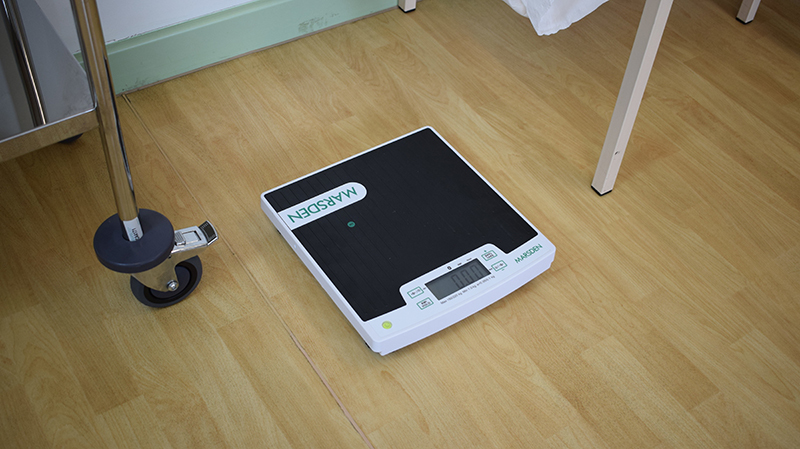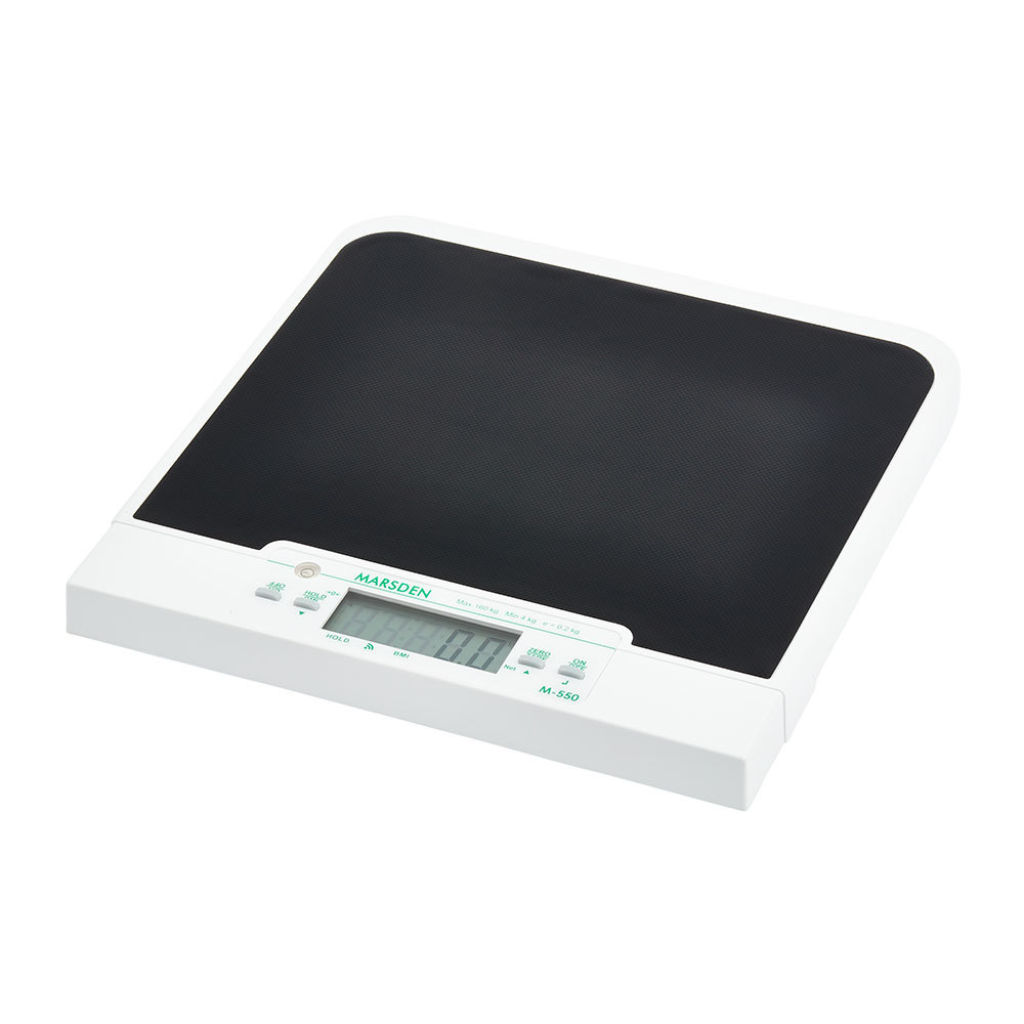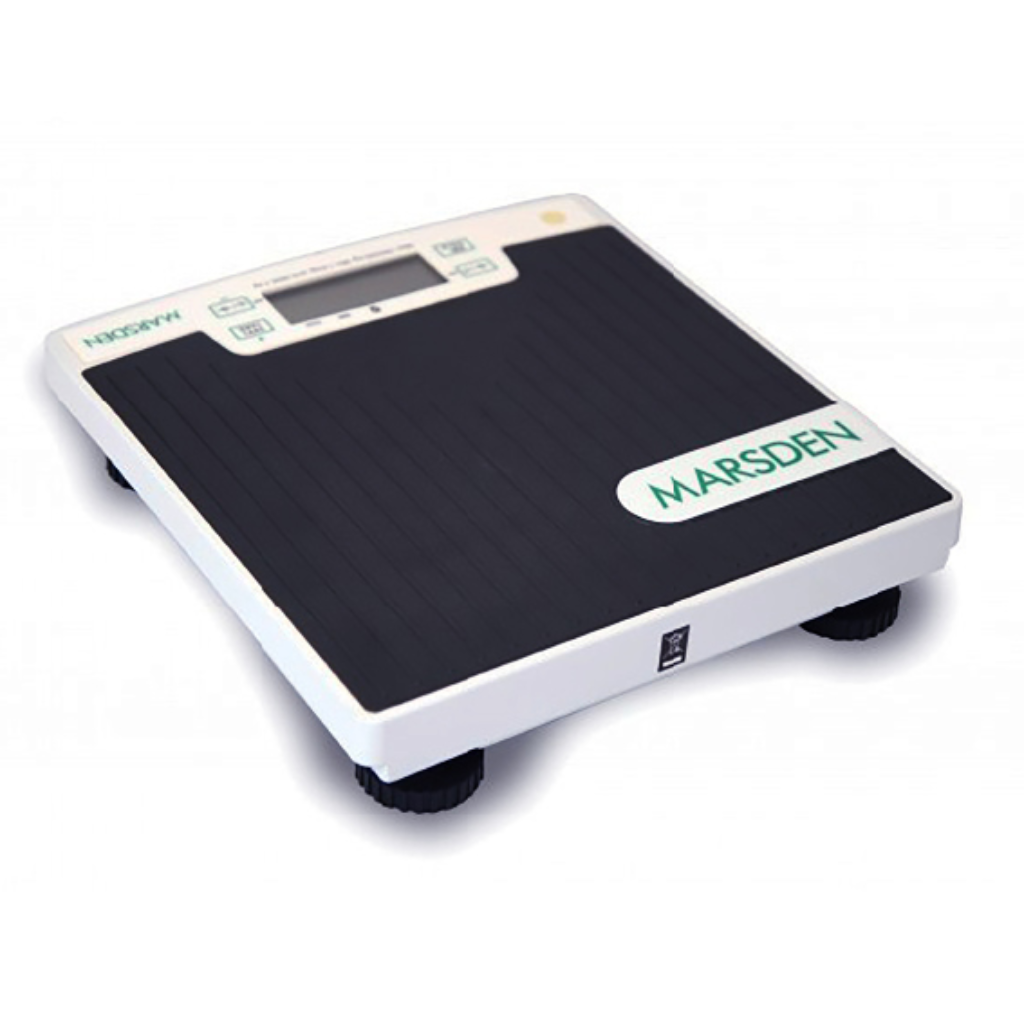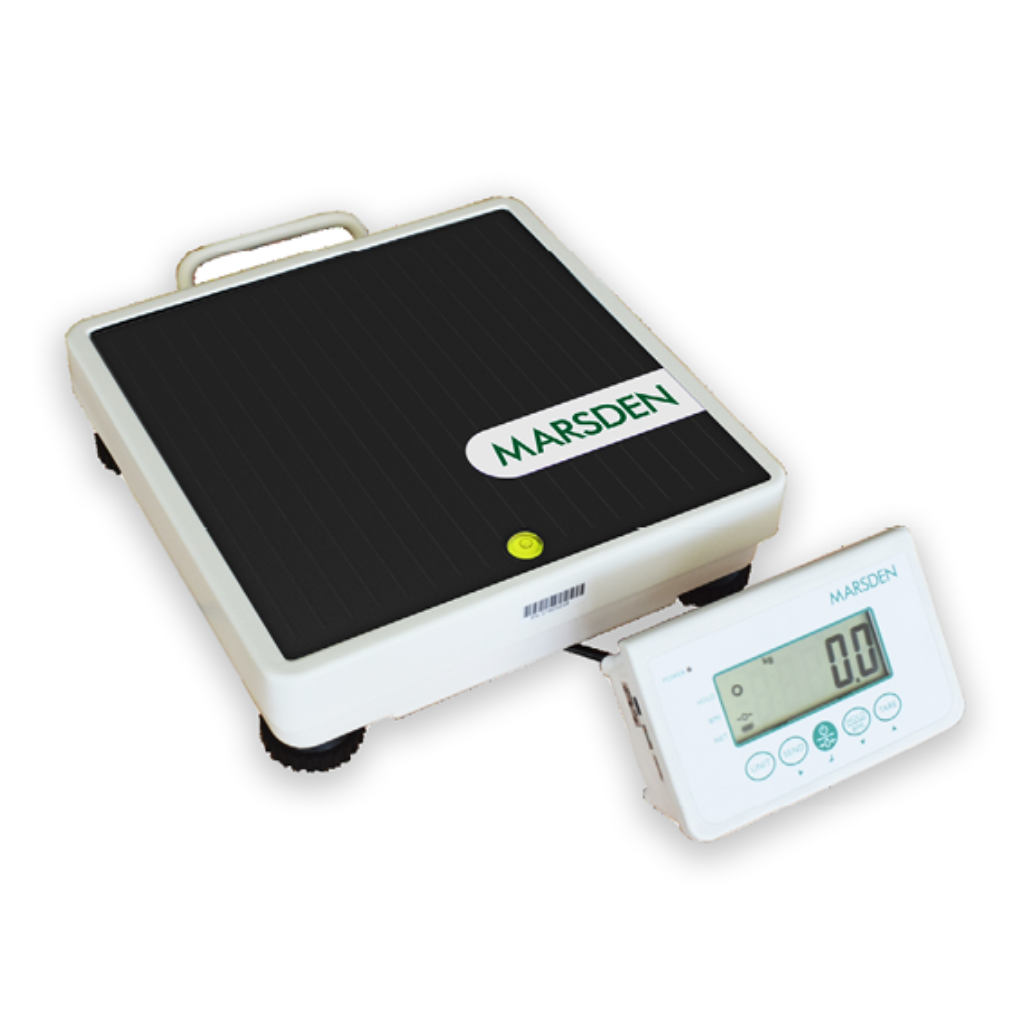What Is the Difference Between Home Scales and Medical Scales?

Pictured above: Marsden M-430 Floor Scale.
Many of us have scales at home, whether we’re working towards our ideal weight and regularly weighing ourselves or we like to check-in on our body weight now and then.
They’re usually found in the bathroom and can be bought relatively cheaply in high-street stores and online.
Although for most people, home scales are ideal for keeping an eye on weight gain or loss, you may have experienced a potential lack of accuracy after later being weighed with professional, medical weighing scales at the hospital or your local GP.
The difference between using home scales and medical weighing scales could be a couple of pounds!
Even if you’ve stuck to your healthy eating and exercise regime, you may notice that when you are weighed at your doctors or other medical practices, that the measurements are not the same as at home on your bathroom scale.
It cannot be said with complete certainty that your home scale is not as accurate as a medical weighing scale, because the difference in measurement could be due to inconsistencies at each weigh-in. To avoid this, you could try to use the same home scale, at the same time of the day while wearing the same clothes to avoid major differences when working out your body mass.
However, generally speaking, bathroom or home scales are not of a high-quality, are cheaply mass-produced and often provide varying results when tested.
Tips for Ensuring Home Weighing Scales Accuracy
Before buying a scale, you may want to give it a try first using a hand weight to test its accuracy.
If you think your scale may not be accurate, then it may need to be recalibrated. This is when the scale is reset to zero weight.
Always place your scale on a hard and level surface like concrete, ceramic tile or a hard wooden floor to avoid inconsistent weight readings.
When using a scale, try to stand both still and in the middle of the scale keeping both feet flat. Do not shift weight from one foot to the other.
If you still suspect your home scales are inaccurate, try the scales at a friend’s, at the gym or even medical weighing scales under the same conditions and then compare the results of the readings.
The Differences Between Home Scales and Medical Scales
Both digital and mechanical home scales can be bought online for as little as £15.00, but when it comes to guaranteed accuracy medical weighing scales are hard to beat and are often worth the increased price.
At Marsden, we sell a wide range of high-quality, reliable and professional medical scales, discover the difference in accuracy and how choosing a medical weighing scale over a ‘cheap’ home scale can have a major impact on your future health and fitness goals
Durability
As home scales are usually sold at a lower price than medical weighing scales, they are often mass-produced and built from lower quality components. Unlike medical weighing scales, home scales do not undergo the same intense calibre of testing and are therefore more likely to break sooner than a professional scale.
To ensure durability, you should look to purchase a Class III Approved Medical scale built from high-quality parts. These scales are designed to be used every day, multiple times a day and prove to be much better value for money than home scales bought online or at the supermarket.
Accuracy
All medical weighing scales are Class III Approved, making them legal for medical use. This also means they are more accurate than cheaper home scales due to the calibre of testing they have undergone and the high standard of performance expected from professional medical equipment.
If you’re working towards health and fitness goals and using weight as a measurement of your success, then it is vital that you use an accurate scale to gain a clear understanding of your actual weight. Inaccuracies could affect your diet and fitness plans, as well as cause issues with your perception of your body and motivation.
If you’re looking for a durable, cost-effective and extremely accurate scale, then our specialists at Marsden recommend you purchase a medical weighing scale for home use. All of our scales are covered by the Marsden four year warranty and are ideal for customers who want to gain a true understanding of their weight.
My Scales vs Other Scales
When it comes to scale quality, the Class III Approved scales used in the medical sector are the most reliable for weighing. This is because they’re legally required to provide repeat results when tested.
Scales used in gyms also tend to be of a high quality .Typically most gyms choose to use Class III Approved scales, however sometimes they choose a different scale of an equivalent quality and accuracy.
As discussed previously, bathroom scales do not tend to be of a high quality. They are cheaply made and provide varying results when tested. It’s recommended to purchase a slightly more expensive, long-lasting scale than a supermarket version, because that way you know you will be seeing your actual weight, rather than an incorrect one. When you next go to your GP, wouldn’t you rather see the same weight you see on your scale at home, rather than one that’s 3lbs above what you thought? How will that affect your motivation and mental state?
Mechanical Scales vs Digital Scales
Digital scales are more reliable than mechanical scales because there’s less things to go wrong. For starters, a traditional analog scale has more parts than a digital scale so, simply, there are more parts that can break.
Furthermore, a report by BMC Public Health discovered that the mechanical scale was incorrect by an average initial weight of 0.95kg.
Additionally, mechanical scales can be incorrectly read as a result of human error. Unlike digital scales, their display can be read wrong from different angles. This could create vastly different results, depending on angle and eyesight. Choosing a digital scale, not only provides precise results, but also negates the opportunity for human error.
Conclusion
Take a look at some of our Class III Approved medical scales like the M-550 digital floor scale that’s up to five times more accurate than traditional GP scales.

The M-430 floor scale with a reinforced aluminium structure and BMI calculation, or the M-545 floor scale with easy-to-use remote indicator and BSA function.

The M-550 Floor Scale is Marsden’s lowest priced Class III Approved medical scale, yet has a range of convenient and easy to use functions and is also covered by the Marsden 4 Year Warranty. It has a capacity of 160kg with graduations as low as 200g below 100kg, increasing to 500g after that.
The M-430 Floor Scale is robust and long-lasting thanks to its stainless steel construct. It has a capacity of 220kg with graduations of 200g. It is a highly dependable, digital alternative to dial scales, and widely used around the world.
The M-545 Floor Scale features a new, easy-to-use remote indicator and also has Body Surface Area (BSA) and Body Mass Index (BMI) calculations built in.

All of these scales are covered by the Marsden 4 Year Warranty.
Related Products:
Further Reading
We've mentioned Class III Approved Scales in this article, but what are they?
While we’ve dipped into it in this post, we actually have a whole blog post comparing mechanical scales to digital scales.
The BBC One Show took a look at how bathroom scales compared to Marsden medical scale and some were inaccurate by around 1 1/2 kg.